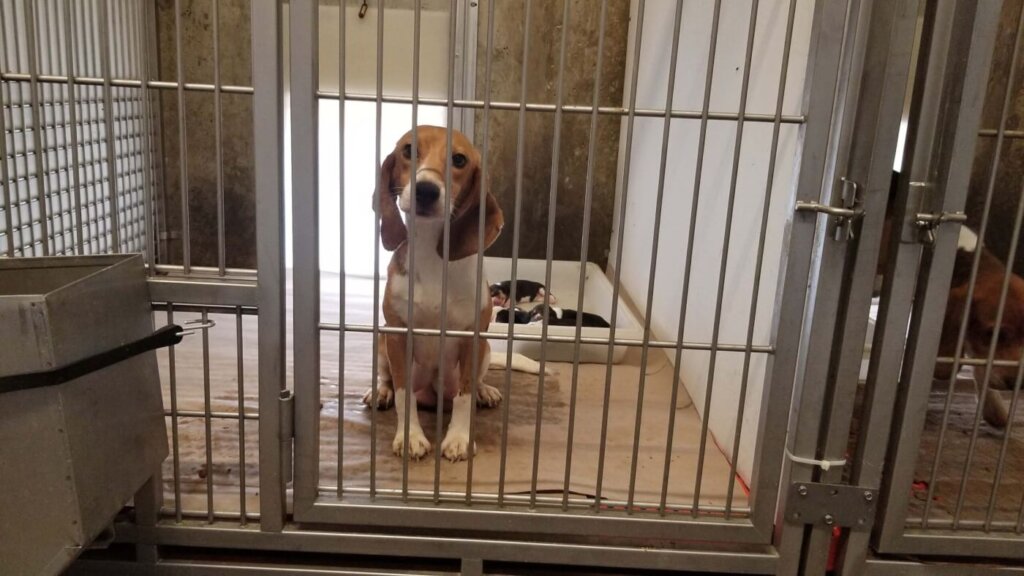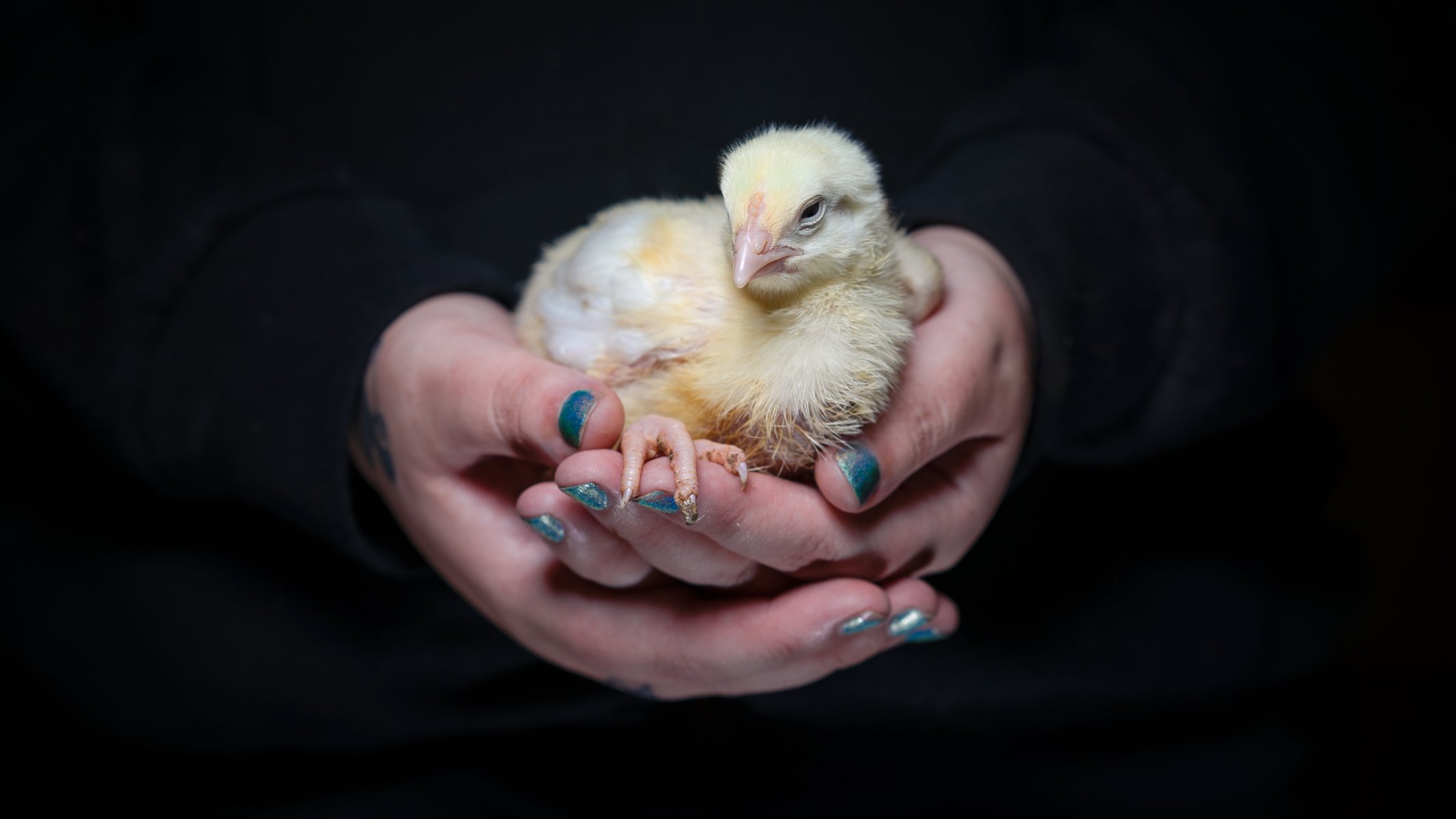
PETA’s Take on New Laws Targeting Vegan Activists in Australia
Both the New South Wales and Queensland state governments as well as the Australian federal government are ramping up laws against animal activists who trespass on farming properties and abattoirs to protest against or film the conditions there. Victoria is also holding an inquiry into the impact of animal rights activism on agriculture.
While PETA protests don’t typically involve trespassing, we applaud anyone and everyone who speaks up for animals. Considering that billions of gentle sheep, chickens, cows, and pigs are strung up – in front of others – and beaten and their throats are slit for a fleeting taste of flesh, who can blame anyone who uses peaceful means to cause people to consider the cruelty of it all?

Animal Rights Is a Peace Movement
Before we delve into the laws’ underlying issues, it’s worth noting that their existence has nothing to do with an actual fear of violence towards farmers – rather, they’re about protecting industry interests and maintaining the status quo.
Not once in the history of animal rights activism anywhere in the world has there been a single incidence of activists physically harming anyone. Harm has certainly flowed the other way: activists, both adults and children, have been dragged, assaulted, pepper-sprayed, and even, in several instances, deliberately killed by animal exploiters – they’ve fatally shot activists and dragged, crushed, and run over them with vehicles. In all cases, the individuals were harmed or killed during peaceful protesting activities and while trying to save animals.
Trespass Laws Already Exist
Trespassing onto private property is already an offence with significant penalties. Creating new and additional protections only in relation to a select group of commercial enterprises is simply a way to appease wealthy and powerful industry bodies that benefit from operating in secrecy.
Biosecurity Threats and Animal Safety Claims
For those with genuine concerns about biosecurity risks in the food supply, let’s not even try to pretend that Australian animal factories are pristine, delicately balanced domes of sterility. More than half the antibiotics imported into Australia are fed to farmed animalsto stave off diseases that without the drugs would thrive in the crowded, filthy living conditions the stressed animals are forced to endure.
In any case, many activists wear sterile booties and hair coverings or even full biohazard suits when they enter a property. Activists who enter battery-cage sheds or other intensive facilities often wear face masks. These serve the dual purpose of helping to maintain biosecurity and providing at least some relief against the suffocating levels of ammonia that make it hard to breathe even for a short amount of time in such places. Spare a thought for the chickens breathing this “biosecure” air for most of their existence.
Biosecurity arguments reek of feigned concern for animals – many of whom live in squalor and all of whom die unwillingly – and the conditions they’re kept in. Not one of these animals is destined for anything other than a gas chamber, an electrified bath, or a knife to the throat.
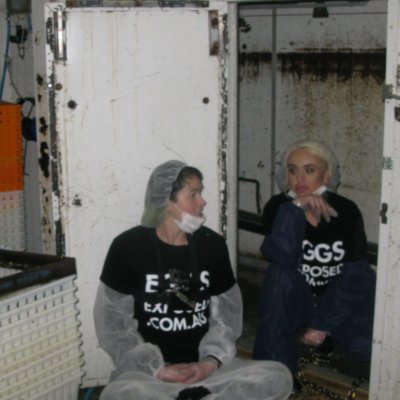
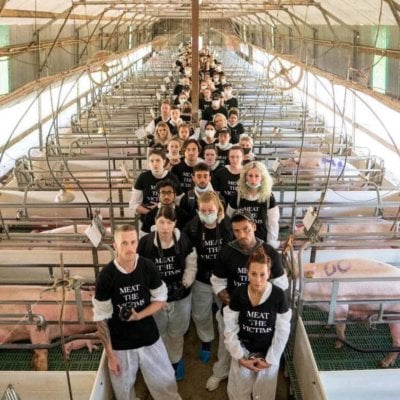
Breach of Privacy for Australian Farming Families
“There are children living on these family farms,” said Agriculture Minister David Littleproud after activists walked onto a feed lot property in southern Queensland.
A common argument against vegan activists entering farms is that homes may also be located on the property and that farmers fear for the safety of their families. But the reality is that no farmers operating intensive animal-agriculture facilities on hundreds or thousands of acres of land have feed lots outside their house’s kitchen window or sow stalls set up next to the swing set.
Activists have no interest in seeing the inside of people’s living rooms. They simply want to witness what’s happening to animals on farms and in abattoirs and to share that information with others.
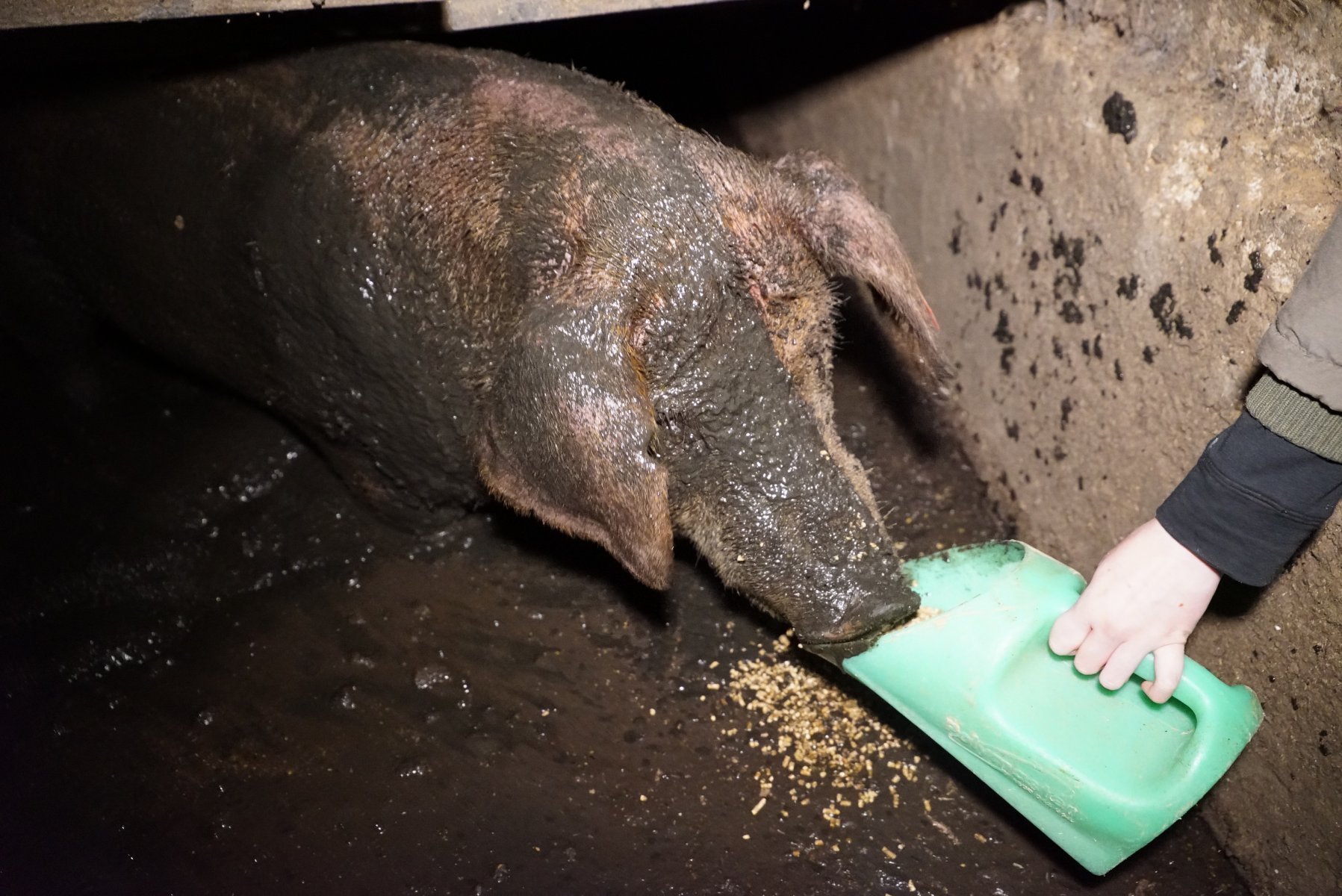
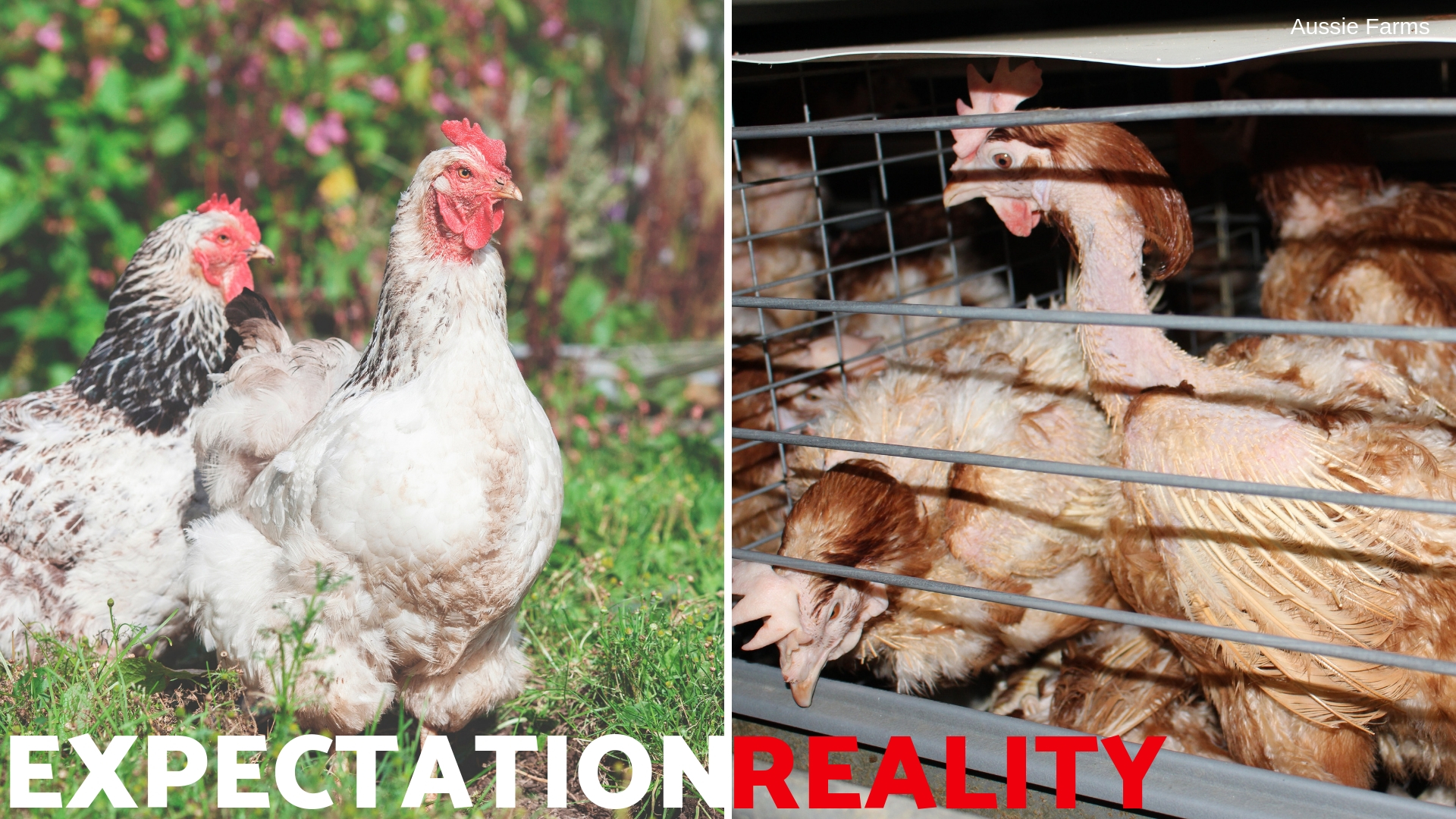
Transparency Is Key
If government and industry bodies wish to deter activists from documenting the living and dying conditions of animals exploited for their flesh, for their skin, and for entertainment, instead of seeking to further shroud their operations in secrecy, they must commit to transparency: place CCTV cameras in all commercial animal enterprises, including farming operations and abattoirs.
The government should also address the nation’s over-reliance on private charities – such as the RSPCA – that are empowered to investigate and enforce cruelty laws. Such entities are perpetually under-funded and have severely limited resources, and they’re subject to a barrage of industry and political pressures. Instead, the government should place such powers in the hands of an independent and taxpayer-funded regulatory body and bolster the laws that enable it to address systemic cruelty.
The new bills seek to intimidate those who work to expose cruelty to animals and are an obvious attempt to hide what animal-exploiting industries don’t want consumers to see.
Australia is moving towards becoming a more caring and inclusive society, and there’s no place in its future for discrimination based on gender, race, sexuality, or species. All change challenges comfort, convenience, and sometimes even the law. Animal rights isn’t the first front on which we’ve seen rebellion. The change that activists are trying to bring about is an integral part of our society’s evolution.
Morally conscious people don’t need laws to do what’s right. We can help animals on factory farms and in other animal-exploiting industries by refusing to use them in experiments, eat or wear them, or use them for entertainment.
Animals Are Suffering in Laboratories – Help Save Them Now
